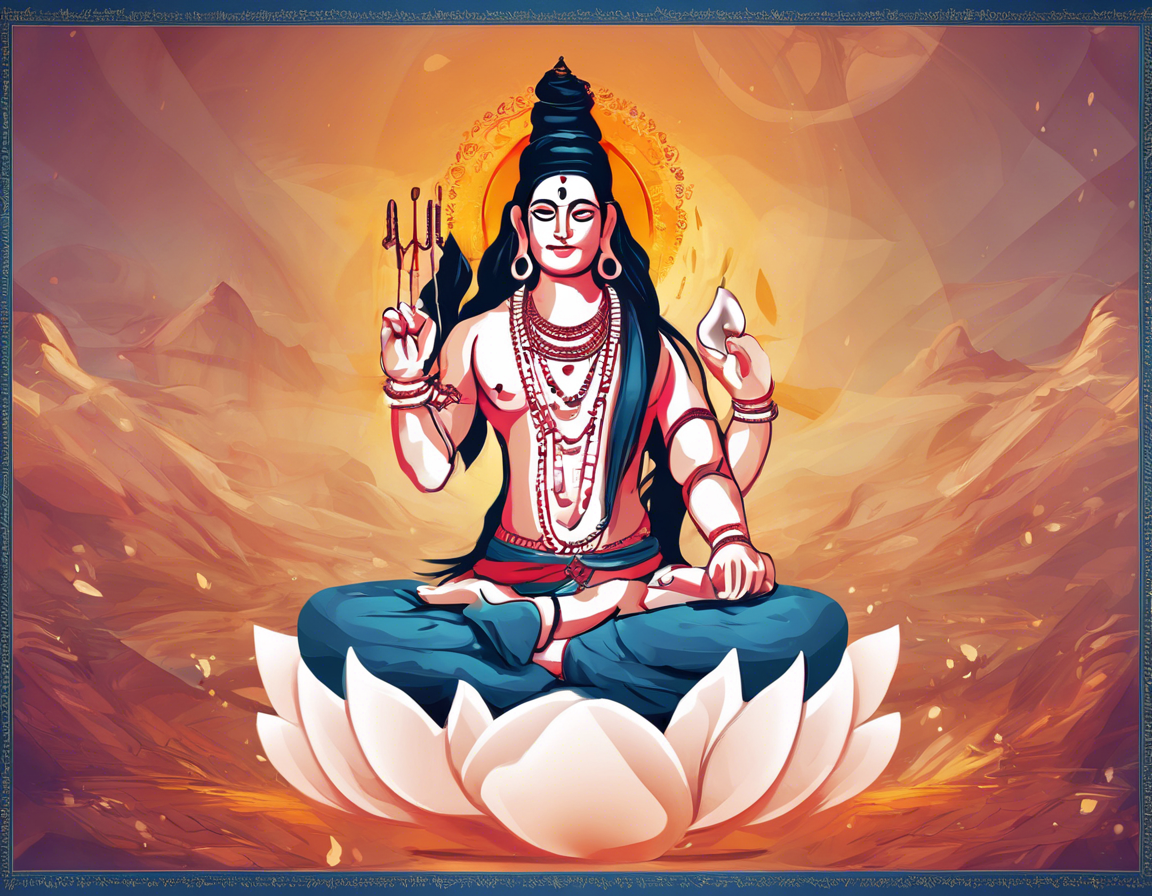Lord Shiva, the supreme God in the Hindu pantheon, holds a significant place in the hearts of millions of devotees. One of the most sacred and widely celebrated festivals dedicated to Lord Shiva is Shivratri. This auspicious festival falls on the 14th day of every lunar month, specifically in the Sawan month (July-August) as per the Hindu calendar. The term Sawan signifies the arrival of the monsoon season in India, symbolizing rejuvenation and fertility.
Significance of Shivratri in Sawan:
Shivratri in the month of Sawan holds immense significance as it is believed to be the favorite month of Lord Shiva. Devotees observe fasts, visit temples, and offer prayers to seek the blessings of the divine. The festival is characterized by various rituals and traditions that are deeply rooted in ancient scriptures and mythological tales.
Rituals and Traditions:
- Fasting: Devotees observe strict fasts on this day, consuming only water or milk.
- Night Vigil: Many devotees stay awake all night, engaging in prayers, chanting hymns, and meditating.
- Abhishek: Ritualistic bathing of the Shiva Lingam with milk, yogurt, honey, and water is a common practice.
- Offerings: Leaves of the Bel Patra tree, flowers, fruits, and sweets are offered to Lord Shiva.
- Meditation: Devotees meditate on the significance of Lord Shiva in their lives and seek spiritual enlightenment.
Dates for 2023 Shivratri Sawan Celebrations:
The Shivratri in the month of Sawan for the year 2023 is slated to fall on Thursday, 27th July 2023. This day holds special importance, and devotees from far and wide converge at various Shiva temples to pay their respects and seek blessings.
Myths and Legends:
The festival of Shivratri is steeped in numerous myths and legends that highlight the glory and supremacy of Lord Shiva. One of the most popular beliefs is that on this day, Lord Shiva performed the divine dance of creation, preservation, and destruction known as the Tandava. It is also said that Shivratri marks the wedding day of Lord Shiva and Goddess Parvati.
Spiritual Significance:
Shivratri holds immense spiritual value for devotees seeking inner peace, strength, and blessings. It is considered a powerful day to cleanse the mind, body, and soul, and to seek forgiveness for past sins. The act of fasting and engaging in prayers is believed to purify the soul and attract divine energies.
Celebrations Across India:
Shivratri in the month of Sawan is celebrated with great enthusiasm and fervor throughout India. From the holy city of Varanasi to the Amarnath Cave in Jammu and Kashmir, devotees throng Shiva temples to offer their prayers. Processions, bhajans, and cultural performances add to the festive spirit, making it a joyous occasion for all.
Modern Customs and Practices:
While the essence of Shivratri remains unchanged, modern customs have seeped into the celebrations. Social media campaigns, virtual satsangs, and online puja services have made it easier for devotees to connect with the divine from the comfort of their homes. Many temples also live stream their celebrations for a broader audience.
FAQ Section:
1. What is the significance of fasting on Shivratri in Sawan?
Fasting on Shivratri is believed to cleanse the body and soul, and it is considered a way to seek the blessings of Lord Shiva for good health and prosperity.
2. Can non-Hindus participate in Shivratri celebrations?
Yes, people from all faiths and backgrounds are welcome to participate in Shivratri celebrations as the festival promotes unity, peace, and spirituality.
3. Are there any specific mantras or prayers to be recited on Shivratri?
The Maha Mrityunjaya Mantra and the Rudra Gayatri Mantra are widely recited on Shivratri to invoke the grace and blessings of Lord Shiva.
4. How is Shivratri celebrated differently in different regions of India?
While the rituals remain the same, the mode of celebration, cultural performances, and customs may vary from region to region. For example, in North India, devotees offer bhang (cannabis) to Lord Shiva as part of the celebrations.
5. Is it necessary to visit a temple on Shivratri?
While visiting a temple is considered auspicious on Shivratri, one can also observe the festival with sincerity and devotion at home by setting up a Shiva altar and engaging in prayers and meditation.
Conclusion:
Shivratri celebrations in the month of Sawan are a vibrant tapestry of traditions, customs, and spirituality that unite millions of devotees in reverence for Lord Shiva. The festival symbolizes the triumph of good over evil and the power of faith and devotion. As devotees gear up to celebrate Shivratri in 2023, may they find solace, blessings, and inner peace in the divine embrace of Lord Shiva.
